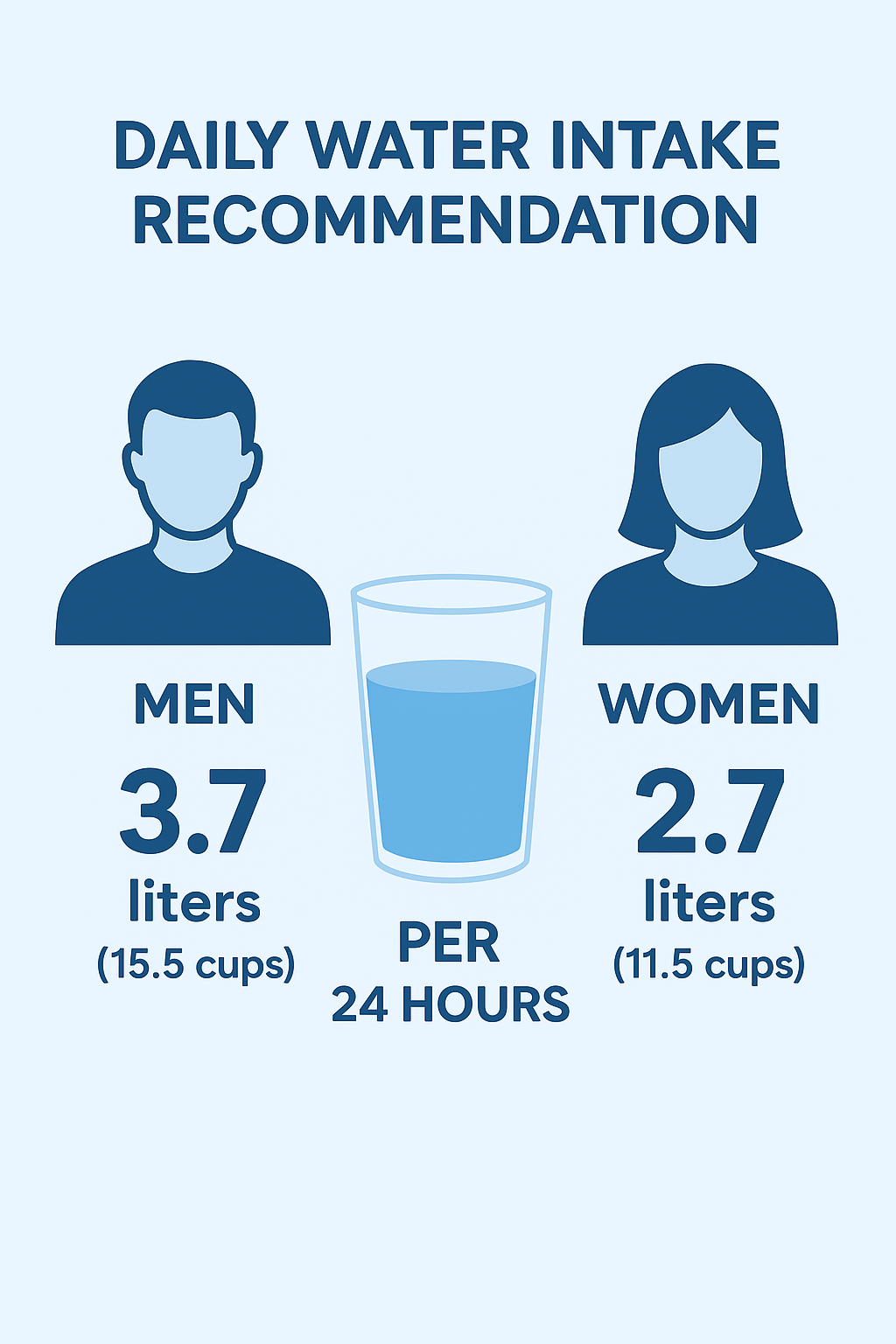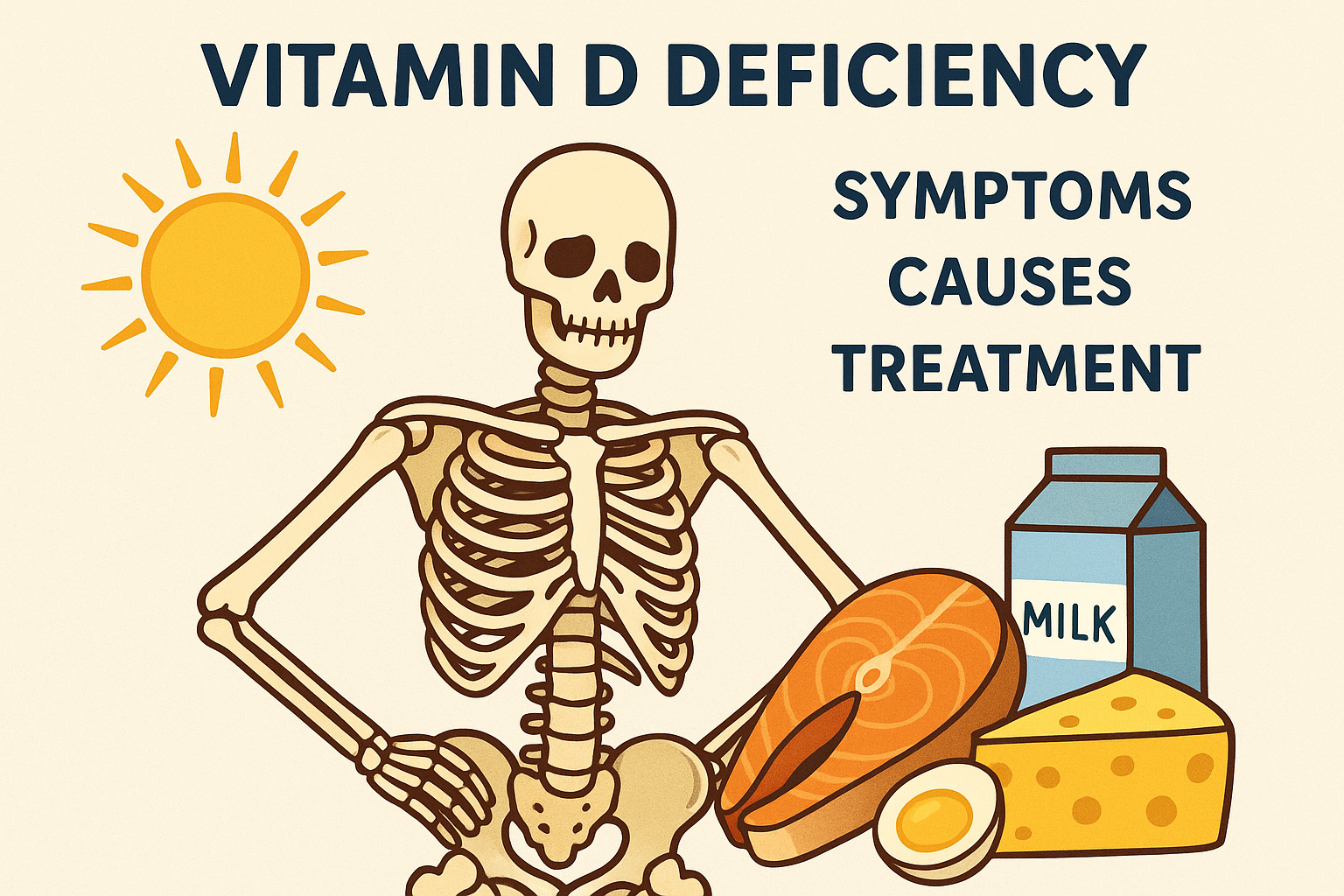Water is essential for life. Every cell, tissue, and organ in the body depends on it to function properly. Adequate hydration helps regulate temperature, transport nutrients, flush out toxins, and maintain overall health. However, many people are unsure about how much water they should drink per day. This blog explains the recommended daily water intake, factors that affect hydration needs, and tips for staying well-hydrated.
Why Is Water Important for the Body?
Water makes up about 60–70% of the human body and plays a crucial role in:
- Regulating body temperature through sweating and respiration
- Lubricating joints and protecting tissues
- Supporting digestion and nutrient absorption
- Maintaining kidney health by flushing out waste products
- Improving skin health and preventing dryness
- Boosting energy and mental clarity
Even mild dehydration can cause headaches, fatigue, poor concentration, and reduced physical performance.
Recommended Daily Water Intake (Per 24 Hours)
The recommended water intake varies by age, gender, and activity level. According to health experts, including the U.S. National Academies of Sciences, Engineering, and Medicine, the daily water intake (from both fluids and food) should be:
- Men: About 3.7 liters (15.5 cups) per day
- Women: About 2.7 liters (11.5 cups) per day
👉 Around 20% of daily hydration comes from food, such as fruits, vegetables, and soups, while the rest should come from fluids.
Factors That Influence Water Needs
Water requirements are not the same for everyone. They can increase in the following situations:
- Climate – Hot and humid weather causes more fluid loss through sweat.
- Physical activity – Exercise and heavy work increase water loss, requiring additional intake.
- Health conditions – Fever, diarrhea, vomiting, kidney stones, or urinary tract infections increase fluid needs.
- Pregnancy and breastfeeding – Women in these stages need extra fluids for fetal growth and milk production.
- Diet – High-protein, salty, or high-fiber diets increase water demand.
Signs of Dehydration
It’s important to recognize when your body needs more water. Common signs include:
- Dark yellow urine
- Dry mouth and lips
- Headache and dizziness
- Fatigue or lack of concentration
- Decreased urination
A simple rule: If you’re thirsty, you’re already slightly dehydrated.
Tips for Maintaining Proper Hydration
- Start your day with a glass of water.
- Drink water before, during, and after exercise.
- Keep a water bottle with you throughout the day.
- Eat water-rich foods like watermelon, cucumber, and oranges.
- Limit sugary drinks and caffeine, as they may increase dehydration.
- Monitor urine color – light yellow usually means good hydration.
Conclusion
Adequate hydration is vital for maintaining good health and preventing dehydration-related complications. While the general guideline is 3.7 liters per day for men and 2.7 liters per day for women, individual needs may vary based on lifestyle, environment, and health conditions. Listening to your body and staying consistent with water intake is the key to long-term well-being.



